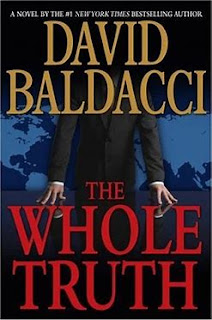A Touch of Terror
Chapter 1
Every time
the bomb rattled in Dane Kanter’s trunk, icy neurons fired through his
bloodstream.
With each sharp turn in the road, his heart stuttered with
anticipation. He winced at every creak
from the back of his Honda Accord. He’d
been gripping the steering wheel so tightly that his arms ached.
It was pure greed that had put him in this situation,
driving up the Pacific Coast Highway at five in the morning, heading toward Los
Angeles. A college dorm prank that
turned into the scariest drive of his life.
Why had he ever considered taking the envelope from that
stranger in Tijuana?
Traffic was
light on this portion of the winding road, but his brain throbbed with
every turn. The ocean waves peeked out of the morning fog
to his left as the sun seeped through the tree line to his right.
A fine mist
was spitting on his windshield as he manually engaged his wipers every thirty
or forty seconds. The road glistened and
he felt his tires hydroplane on the sharp turns. Everything seemed to conspire against
him. Even the city planning wouldn’t
cooperate. His gas gauge had been on
empty for twenty miles, but this stretch of quiet road lacked a gas
station.
Just trees and asphalt and the continuous threat of an
explosion to keep him company.
Dane kept
imagining ways to rectify the situation
. He couldn’t abandon the car,
the Mexican had made sure of that. A
detonation device was strapped to his chest and the bomb would explode should
he move even thirty feet from the driver’s seat. A code-locked keypad secured the chest strap
and only one person knew the proper code to detach the strap. One wrong sequence of numbers and Dane’s
worries would disintegrate. Along with
Dane.
The ”low
gas” warning light blinked on and he almost
puked at the sight. He was being
monitored with a GPS device and a miniature camera was attached to his
dashboard for surveillance. A gas stop
might be tolerated, but a prolonged stoppage like running out of gas on the
side of the road would only expedite the explosion.
Plus there
was the deadline. He’d been given eight
hours to get to his destination. At
eight hours and one minute he became extinct.
There had to be a way of getting rid of this device without exploring
the next world, but nerves and rain and wet roads kept him focused on just one
thing. Get to the drop and have the
detonator removed safely.
He wiped a
patch of sweat from his forehead, then squinted as the road curved around a
sharp bend and he saw flashing lights swirl against the trees to his right.
“Shit,” he
muttered. Less than a mile ahead was a
road block, with white and green SUV’s parked on each side of a single-lane
bottleneck of cars. He thought about turning,
but saw it was Border Patrol vehicles.
It was rare to see a road block this far north. But Dane was a pasty white teenager with
blond surfer hair. He should be of no
interest to them. Unless he acted
suspicious.
He tried to
control his breathing as he approached the line of cars waiting for
inspection. Even in the morning chill,
his hands were clammy around the steering wheel. There were three cars ahead of him; the first
was waved through by the green-uniformed Border Patrol Officer after he bent to
inspect the contents of the small sedan.
The line crept forward as each car received a quick glance and a wave of
an arm.
Finally, it
was Dane’s turn.
With his window open, he rolled the car forward, expecting
the officer to wave him through without stopping. But the guy held up a hand
and Dane nearly dropped a load in his pants.
That’s when he looked at his side view mirror and spotted the German
Shepherd sniffing at the back of his car.
Another officer was pulling on the leash to restrain the dog.
“Are you
carrying any weapons with you?” the officer asked.
The
question surprised Dane and he stammered.
“N-no, of course not.”
The dog was
sniffing so hard Dane could hear him puffing at the base of his car.
“Would you please pull the car over
to the side of the road?” the officer asked.
That was
it. There was no chance he could survive
an inspection. And the Mexican was
hearing everything. Seeing everything. He could detonate the bomb remotely at any
moment.
Dane’s heart pounded like a jackhammer.
There was
no choice.
He slammed
on the accelerator.



